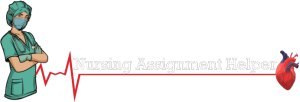Communication Assignment Help
Nursing Assignment Helper offer specialized communication assignment help tailored for nursing students. Our expert team is dedicated to helping you excel in your coursework by providing guidance and support on all aspects of Nursing Communication Assignments.
Whether you need help with effective communication skills, overcoming barriers, or understanding the role of communication in patient care, our services are designed to meet your needs. Trust us to enhance your communication abilities and achieve academic success in the field of nursing.

Our Assignment Features






Connect With The Best Communication Assignment Experts
Trusted by nursing students across Australia and the UK







































Introduction to Communication Assignment Help
Communication assignment help is a specialized service designed to assist students in developing effective communication skills in various academic and professional fields. In a world driven by effective interaction, communication assignments play a crucial role in assessing one’s ability to convey ideas, exchange information, and connect with others. These assignments often encompass verbal, non-verbal, and written communication, reflecting the real-world demands of clear and concise expression.
In academic settings, students may encounter communication assignments that require them to demonstrate their understanding of the importance of communication, its various types, and how to overcome communication barriers. These assignments not only contribute to their academic performance but also prepare them for the practical demands of their future careers.
Communication assignment help services aim to support students in mastering these crucial skills. They provide guidance, resources, and expert assistance to ensure that students can excel in their coursework and, subsequently, in their professional endeavors. Whether it’s understanding the nuances of effective communication in healthcare, business, or any other field, these services are designed to equip students with the tools they need to succeed.
The Importance of Communication in Nursing

Patient-Centered Care
Building Trust
Safety
Emotional Support
Advocacy
Quality of Care
Interprofessional Collaboration
Patient Education
Ethical Dilemmas
Legal Documentation
Accurate and thorough documentation is a critical aspect of Nursing Practice. It serves as a form of communication among healthcare professionals and is essential for legal protection and maintaining the continuity of care.
Types of Communication in Nursing
Verbal Communication
- Nurse-Patient Communication: This is the direct exchange of information through spoken words. Nurses use verbal communication to obtain patient histories, explain treatment plans, and address patient concerns.
- Nurse-Doctor Communication: Effective verbal communication between nurses and doctors is essential for conveying patient information, discussing treatment options, and ensuring seamless care coordination.
- Nurse-Nurse Communication: Nurses collaborate closely with their colleagues. Verbal communication among nurses is vital for sharing patient updates, discussing care plans, and maintaining a safe and efficient healthcare environment.
Non-Verbal Communication
- Body Language: Non-verbal cues such as facial expressions, gestures, and posture convey a wealth of information. Nurses need to be skilled in reading and using non-verbal communication effectively to understand patients’ emotions and convey empathy.
- Eye Contact: Maintaining appropriate eye contact demonstrates attentiveness and can help build trust with patients.
- Touch: A gentle touch can be reassuring and comforting, but it should always be used with sensitivity to cultural and individual preferences.
Written Communication
- Patient Records: Documenting patient information is a critical aspect of nursing practice. Nurses maintain detailed patient records, including medical histories, treatment plans, and progress notes. Accurate and timely documentation ensures continuity of care and legal protection.
- Reports: Nurses often provide written reports to update other healthcare professionals about a patient’s condition and care plan. These reports are essential for interprofessional communication and care coordination.
Electronic Communication
- Emails: In modern healthcare settings, email is used for communicating with colleagues, administrators, and even patients for non-urgent matters.
- Electronic Health Records (EHRs): EHRs store patient information digitally and allow for easy access and sharing among healthcare professionals. They enhance the efficiency and accuracy of healthcare communication.
- Telemedicine: The use of telemedicine platforms enables nurses to communicate with patients remotely. It has become particularly important in providing care during emergencies and for patients in remote areas.
Symbolic Communication
Use of Symbols and Charts: Symbols and charts can convey important information at a glance. For example, a red cross on a patient’s chart may indicate allergies, allowing for quick and safe communication of critical information.
Overcoming Communication Barriers in Nursing
Effective communication is vital in nursing, but various barriers can hinder the exchange of crucial information among Healthcare Professionals and with patients. Identifying and overcoming these barriers is essential to ensure patient safety and quality care. Here are some common communication barriers in nursing and strategies to address them:
Language Barriers
Hearing Impairments
Cultural Differences
Health Literacy
Emotional Barriers
Environmental Factors
Assumptions and Stereotypes
Technology Challenges
Interpersonal Conflicts
Time Constraints
Hierarchy and Power Dynamics
Lack of Training
Overcoming these communication barriers in nursing is essential to ensure that patients receive the best possible care, and that Healthcare Professionals can collaborate effectively. Addressing these challenges enhances patient safety, improves outcomes, and fosters a healthcare environment where clear and compassionate communication is the norm.
Why Do Students Need Nursing Communication Assignment Help?
Students pursuing nursing degrees often find themselves in need of nursing assignment help for several compelling reasons:
Complexity of Nursing Communication
Diverse Assignments
Time Constraints
Language and Writing Barriers
Clarity and Quality
Learning Support
Access to Expertise
Technology Challenges
Interpersonal Conflicts
Time Constraints
Enhancing Practical Skills
Reducing Stress
Customized Assistance
Enhancing Your Communication Skills for Academic Success with Nursing Assignment Helper
Effective communication is essential for academic achievement in today’s fast-paced society. Whether you’re a student looking to improve your grades or a teacher looking to enhance your teaching skills, this thorough guide from Nursing Assignment Helper at nursingassignmenthelper.io will assist you in mastering the art of communication.
We’ll dig into the complexities of communication, providing practical suggestions and tactics to help you achieve in your academic endeavours while also investigating the academic significance of “nursing assignment help,” “online nursing assignment help,” and “nursing assignment writing service.”
Effective Communication in Education
Effective communication is vital in the field of education, as it underpins the learning process. It plays a pivotal role in the following aspects:
- Student-Teacher Interaction: A harmonious student-teacher relationship relies heavily on communication. Teachers must convey information clearly, respond to inquiries, and offer guidance, while students must articulate their thoughts and seek clarification. Effective communication fosters a conducive and productive learning environment, “online assignment help” can be sought when needed.
- Academic Performance: Robust communication skills play a pivotal role in elevating academic performance. Students who can express their ideas and thoughts coherently tend to excel in classroom discussions, written assignments, and examinations, sometimes with the assistance of “nursing assignment help” and “online assignment help.” Improved writing skills lead to more refined research papers and assignments, enabling students to communicate their understanding of the subject matter effectively, supported by “nursing assignment writing service.”
- Collaboration: Collaborative projects are common in academic settings. Effective communication is essential for successful teamwork, ensuring that team members are aligned in their objectives, and can efficiently share insights, ideas, and responsibilities. This, in turn, results in the creation of high-quality projects and presentations.”
Developing Strong Communication Skills
To outrank your competition in the academic world, you need to develop strong communication skills. Here’s how:
- Active Listening: Active listening is the foundation of effective communication. It involves fully engaging with the speaker, asking questions, and providing feedback. Practice active listening in the classroom to grasp complex concepts and during group discussions to understand different viewpoints, and consider seeking “nursing assignment help” when you need clarification.
- Improve Your Writing: Well-structured and coherent writing is a valuable asset in academia, sometimes requiring the assistance of “nursing assignment writing service.” To enhance your writing skills, focus on grammar, style, and clarity, and consider using tools like Grammarly to proofread your work and ensure it’s error-free. “Online assignment help” can also provide valuable guidance.
- Presentation Skills: Oral presentations are a common assessment method in education. Work on your presentation skills, including public speaking, creating engaging slides, and addressing questions confidently. These skills will help you stand out and impress both teachers and peers, with the possibility of utilizing “nursing assignment help” for in-depth research.
- Effective Feedback: Providing and receiving feedback is an essential aspect of the learning process. Learn to give constructive feedback to your peers, and be open to receiving feedback to improve your work continually. Seek “online assignment help” to enhance your understanding of complex subjects.
- Body Language: Non-verbal communication is equally important. Pay attention to your body language, as it can convey confidence and attentiveness. Maintain eye contact, use gestures purposefully, and stand or sit with good posture, ensuring your message is clear even without “nursing assignment writing service.”



